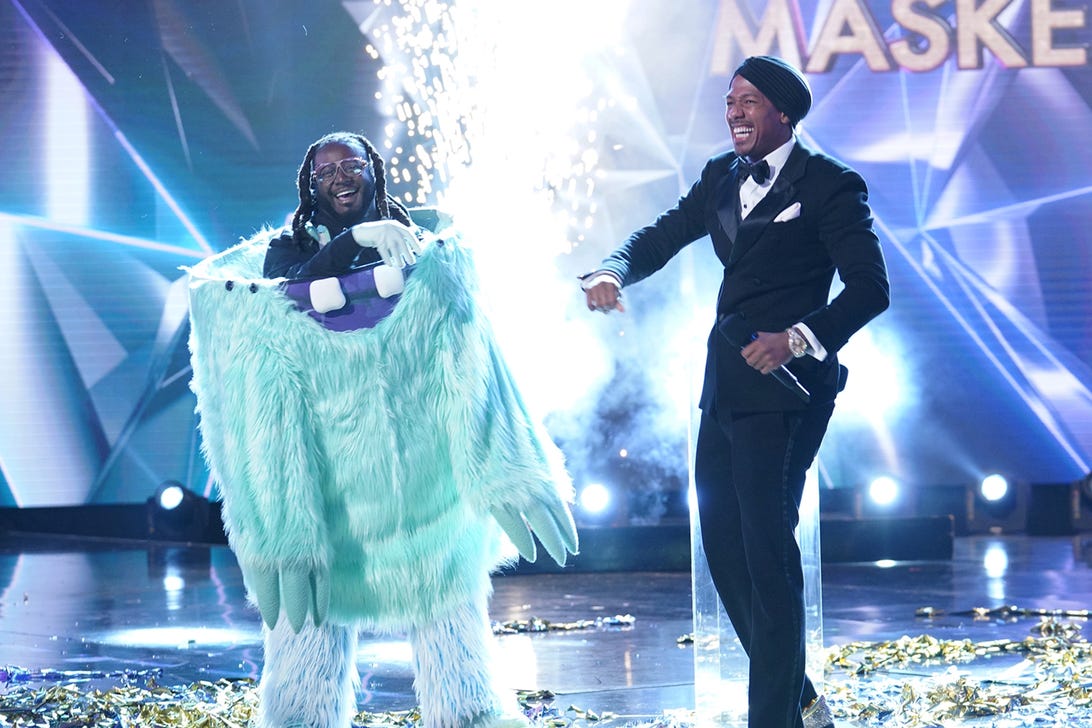
'The Masked Singer' Was the Most Underestimated Show of the TV Season
A testament to the power of being your weird, wonderful self

In what world could auto-tune reliant crooner T-Pain beat Gladys-Knight in a singing contest? Before Fox's The Masked Singer, even asking such a thing might lead one's friends and family to schedule some wellness checks. But after the honey-voiced hip-hopper -- wearing a turquoise, one-eyed monster suit -- put in a wall-shaking rendition of the cheesy party classic "This is How We Do It" in the finale, it became clear that The Masked Singer was a place where even a living legend like Knight could have her stature, contributions, and longevity dismissed based on the strength of one performance. And as ridiculous as it was to grasp that the man whose opus is "I'm N Luv (Wit a Stripper)" out-sang the mother of "Midnight Train to Georgia," The Masked Singer, in its completely nuts way, offered a beautifully democratic take on the song-and-dance reality show genre. Like Forrest Gump, The Masked Singer found strength in its stupidity, enlightenment from being an embarrassing outsider.
TV Yearbook: Let's Celebrate the TV Season's Best Moments
Who could've seen its success coming? Not me, and perhaps not Fox, which swiped the idea from South Korea and stuck it on Wednesday's final hour of primetime, competing against low-stakes fare like Modern Family and CBS' SEAL Team. Evidently though, executive producer Craig Plestis knew what some of us cranky, unimaginative, and jaded bores did not: The public has an unquenchable appetite for absurd, escapist, family-friendly television, not to mention campy pop hits and watching B-level celebrities take part in a mildly suspenseful guessing game. The Masked Singer proved a huge hit for Fox, becoming the highest-rated unscripted debut in more than seven years, and the series continued its dominance through its freshman run.

T-Pain and Nick Cannon, The Masked Singer
FoxUnafraid to not be taken seriously, The Masked Singer upset the natural order of the singing reality show world, where, by and large, hopefuls vie for some life-altering win. Not here. Suggesting that this strategy worked because it allowed Americans to forget the daily onslaught of terrible news might be trite psychobabble -- also partially accurate. But who cares? The Masked Singer had stunning costumes and let people have good, clean fun for an hour. If there was anything deeply resonant about it, it's that it turned its contestants into newer, more authentic versions of themselves, if only for a while. Week after week, particularly as singers got closer to the finish line, talent like Ricki Lake, Tori Spelling, and Rumer Willis spoke of how anonymity and the act of vanishing into a costume liberated them from themselves. We all wear masks every day, after all, and must do the work of removing them to discover our true selves. But this bizarre little show kicked ass by doing the opposite. Daring to be its wonderfully weird self, The Masked Singer showed everyone that sometimes putting on a mask can be the surest route to finding out who you really are and, if you're T-Pain, soaring to unbelievable heights.
Because this is such a competitive category, TV Guide wanted to take this opportunity to shout-out all the runners-up who just barely missed out on the honor of Most Underestimated: Bodyguard, which came out of nowhere to become the must-watch prestige thriller of the season; Legends of Tomorrow, which continued to bethe most criminally underrated superhero series; and PEN15, which provided an insightful (and hilariously accurate) look into the middle school girl experience.
